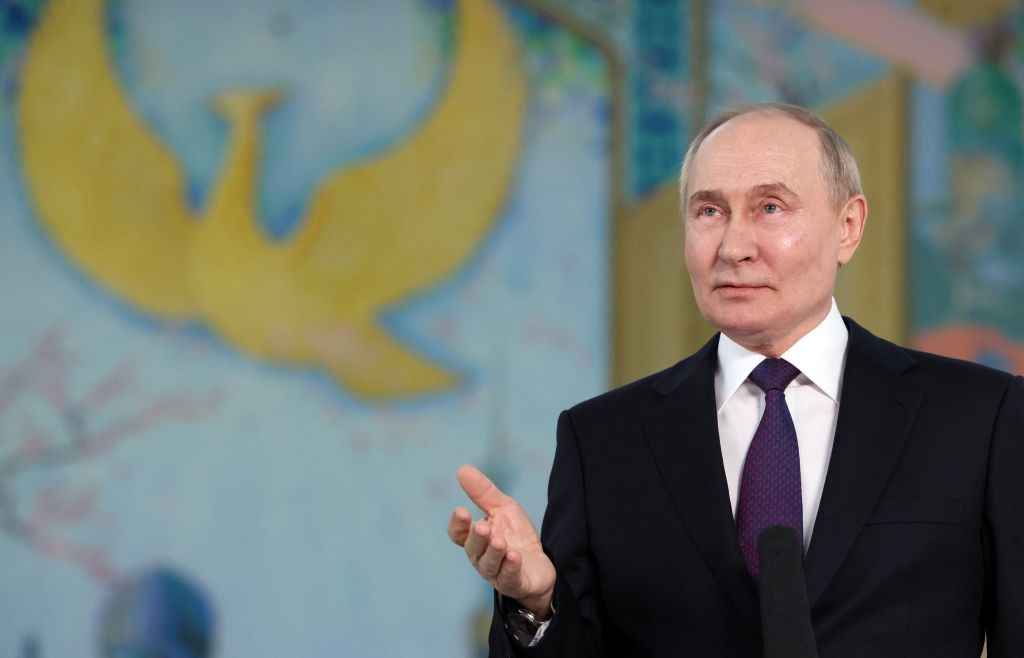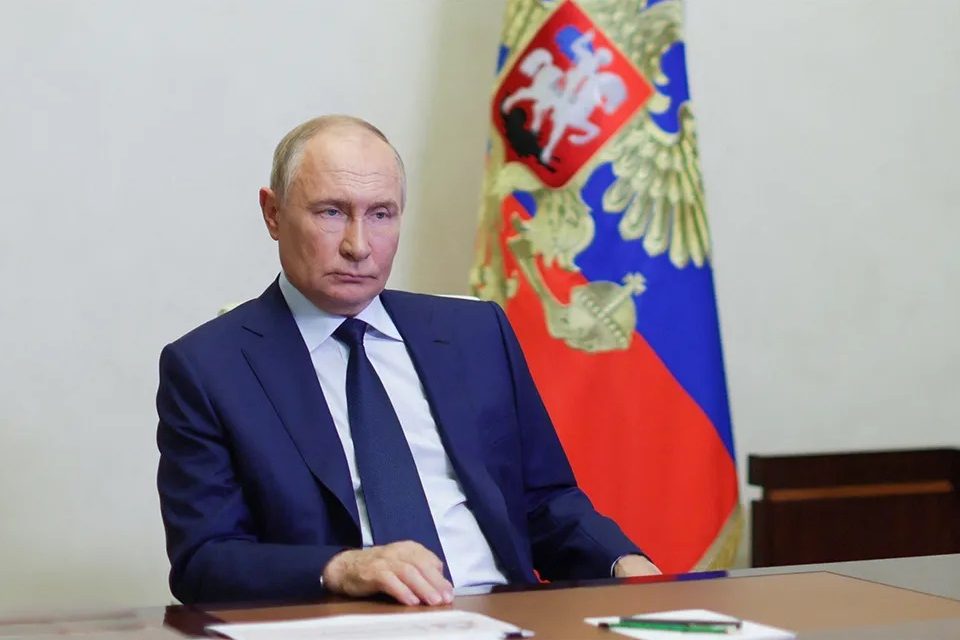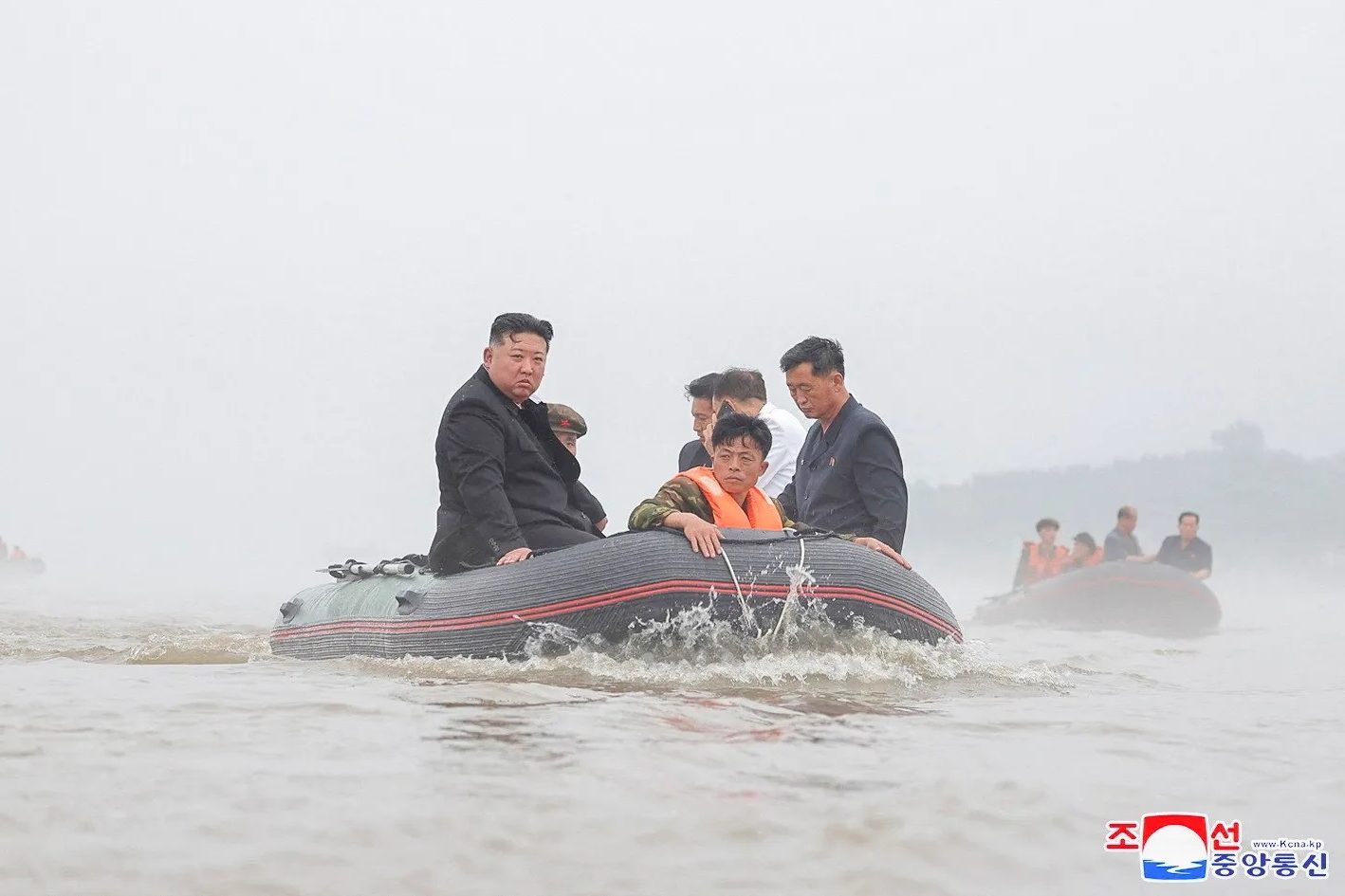Everyone loves Russia, or at least echoes its talking points — if you believe the country’s state media. Why should it be so important for Vladimir Putin, who tries to appear impervious to foreign criticism, to magnify any seemingly supporting words?
It underlines a centuries-old insecurity at the heart of Russia
There was a distinct absence of Western guests at last week’s St. Petersburg International Economic Forum (SPIEF), once Russia’s shop window for investment and trade deals and nicknamed the “Russian Davos.” There was the Hungarian foreign minister (who presented attending as an act of maverick courage), but otherwise the main dignitaries there came from the Global South — or World Majority, as Moscow has taken to calling it — and even the Taliban.
So perhaps as compensation, the official media is suddenly full of past and present bigwigs apparently confirming Vladimir Putin’s lines. Karin Kneissl, the former Austrian foreign minister, told the TASS news agency that she remembered “that long before 2022, people were making statements saying that it would be more reasonable if there was some kind of balkanization of Russia, you know, like a collapse, disintegration.” TASS didn’t see fit to mention that she infamously danced with Putin at her wedding and now lives in Russia, but was happy to note that this confirms what her erstwhile dance partner had claimed, that Western leaders “say that Russia needs to be divided into dozens of small entities. In order to then subjugate it to one’s will and exploit it in one’s own interests.”
While it is true that especially hawkish figures such as Estonia’s Kaja Kallas have said that we should not necessarily fear any potential disintegration, the Western consensus is actually that such an outcome might be dangerous, and should certainly not be our goal. But such nuance has no place in TASS.
Meanwhile, Slovak prime minister Robert Fico, still recuperating from an assassination attempt, is quoted in the Kremlin’s newspaper of record, Rossiiskaya Gazeta, as saying that the “large Western democracies do not want peace, but an escalation of tension with Russia.” The recent decision by some donor countries to allow Kyiv to use their weapons in limited attacks on the Russian mainland is interpreted — just as Putin has been saying — as proof that they are using Ukraine as a proxy in a “militaristic adventure” against the Motherland.
Even an interview with Erik Prince, the founder of the mercenary company which used to be called Blackwater (which was one of Moscow’s inspirations to set up its own Wagner force in 2013-14) is mined for the right sentiments. In conversation with Tucker Carlson, who has had his own Putin interview, Prince criticizes Joe Biden for not plainly stating that Ukraine would not join NATO, claiming that this would have forestalled war. For the Russian media, this became an opportunity to trumpet that the war could end quickly — if only the West abandon Kyiv.
At a time when Putin is trumpeting his contempt for the West, its decadent values and its habitual mendacity, why is it so important to be validated by its populists, has-beens and fringe figures? Why do they always get top billing? Why, for example, is homegrown nationalist philosopher Alexander Dugin cited in support of Prince, rather than vice versa?
Of course, it is always useful to be able to reflect back Western voices in the bid to encourage those in Europe and the United States who are opposed to current policy over Ukraine. As governments harden their positions while “Ukraine fatigue” actually grows, the scope to exploit this to disruptive effect only increases.
Yet these are media outlets largely speaking to Russians, not foreigners. Here, it is hard not to conclude that it also reflects a deep-seated insecurity within the country in general and Putin and his regime in particular. At the SPIEF, when pressed by hawkish academic Sergei Karaganov to agree that Russia ought to reorient to Asia, Putin reaffirmed that the country was a European one, even if, in his opinion, Western Europe was losing the values and identity for which it had once stood. Most Russians would wholeheartedly agree on both points.
Given that he (or at least his administration, which continues to poll the popular mood obsessively) knows that his Ukrainian invasion is not especially popular — most Russians favor negotiations, if not concessions — then claiming that the “real” Westerners are either on Russia’s side, or at least confirming Putin’s storyline, is an attempt to give it some greater legitimacy. In the process, it also underlines a centuries-old insecurity at the heart of Russia, as it seeks to confirm its place in a Europe it also often resents and fears. To think that it is now the bastion of true European values, and that Europeans also recognize this, must be something of a consolation for being locked away by sanctions and travel bans.
This article was originally published on The Spectator’s UK website.


























Leave a Reply